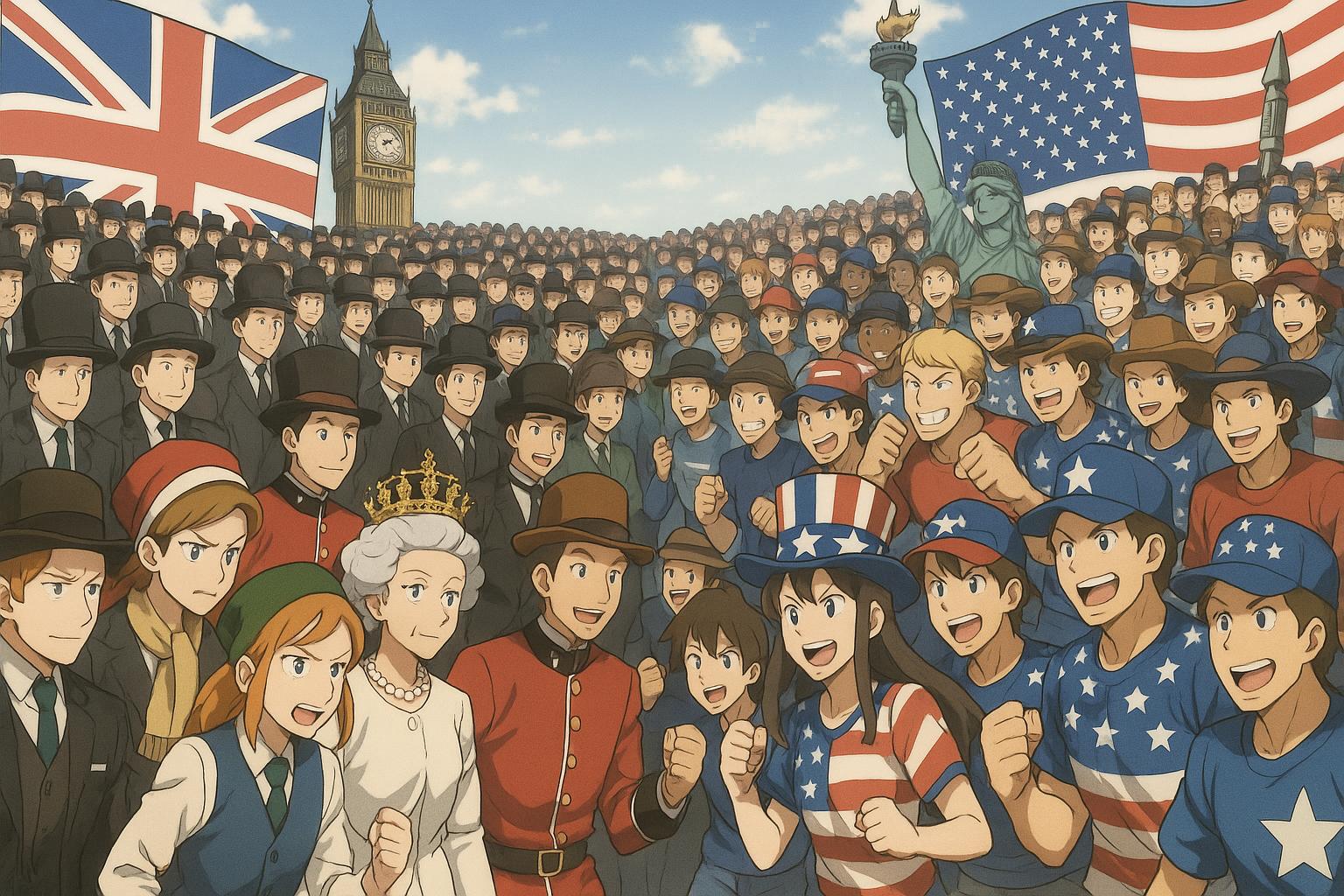In a world often preoccupied with serious issues, a recent TikTok debate has piqued the interests of netizens by posing a frivolous yet entertaining question: in a hypothetical showdown, who would emerge victorious—100 British individuals or 100 Americans? The debate, inspired by viral content that juxtaposes the absurdity of imagining a fight between groups rather than traditional sports rivalries, has drawn in millions of views and engaged users in a light-hearted discussion.
At first glance, one might dismiss this as mere internet banter, but surprisingly, the debate reflects deeper undercurrents of cultural identities and national pride. Most responses favour the Americans, a sentiment echoed by informal polling. A personal anecdote from the author about an American spouse suggests that historical narratives, like the American Revolution, play a significant role in shaping perceptions of national prowess. "We just care more about winning," she asserts, illustrating how competitive spirit is perceived in American culture.
Interestingly, even artificial intelligence joins the fray. A query to ChatGPT reveals a similar bias toward American supremacy in this fictitious battle, albeit with a nod to British resilience. The AI cites British traits like a "high tolerance for physical discomfort," which adds a layer of humour regarding the cultural differences in handling everyday adversities. It’s a delightful reminder that perhaps it’s not brute force but rather a unique blend of tenacity and wit that characterises national identities.
The article also entertains the notion of organising this debate into an actual competition, whimsy aside. Drawing a parallel to the Enhanced Games—an upcoming event where performance-enhancing drugs will be allowed—the author suggests a new breed of competition that transcends traditional athleticism. The Enhanced Games, backed by prominent investors including tech mogul Peter Thiel and Donald Trump Jr., have ignited considerable controversy. This initiative raises questions about the ethics of sport and the role of performance enhancement, casting a shadow over traditional competitive ideals.
Imagine then, the Unhinged Games, conceptualised not just as a spectacle of strength but as a celebration of ludicrous national stereotypes: "Can 100 British football hooligans out-mayhem 100 Philadelphia Eagles fans?" or perhaps "Can 68 million Brits out-drink 330 million Americans in beer?" These whimsical ideas serve to underscore a fundamental truth—while sports often foster camaraderie, they also illuminate national differences through humour and rivalry.
In essence, this fanciful debate may seem trivial, yet it taps into the zeitgeist of both national identity and the absurdity of social media. By embracing the ridiculous, we perhaps encounter a more meaningful exploration of what makes us distinctly ourselves—an exploration that, while entertaining, may also unify rather than divide.
Reference Map
- Paragraph 1: [2]
- Paragraph 2: [1]
- Paragraph 3: [1]
- Paragraph 4: [3], [4]
- Paragraph 5: [1]
- Paragraph 6: [1]
Source: Noah Wire Services
